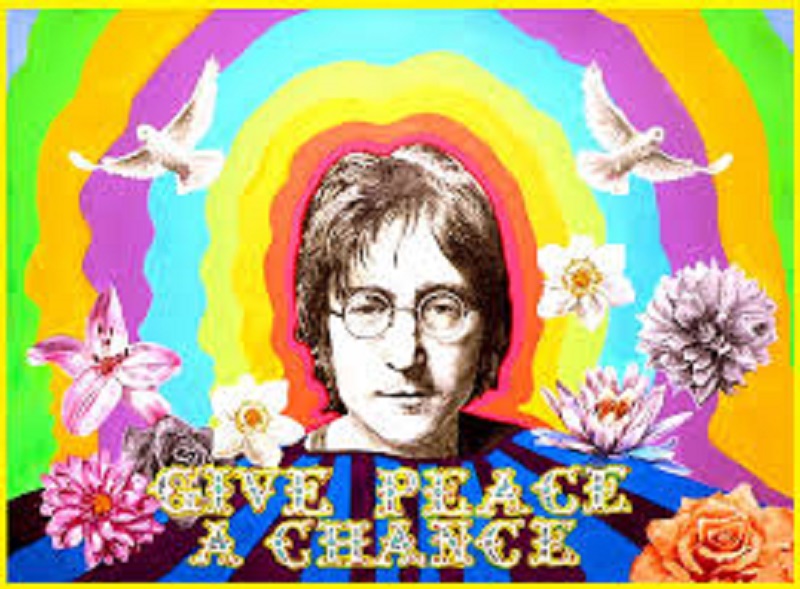



(Hicks / Lynch)
Next time I meet a girl, I won't ask her her name
Or where she's been, or where she came from
The last time I found love it only brought me pain
The problems almost took me over
I was washing up for mother, I was lighting pipes for papa
And fetching water
And that's got nothing at all, that's got nothing at all
To do with love
Next time I meet a girl
I won't tell her my name
Or where I've been
Or where I came from
I'll take a hold of her
And love her just the same
No need to mention past acquaintances
I just want someone to love me
And someone to like the presents
That I bought her
'Cause that's got something to do
Yes, that's got something to do
To do with love
Each girl I meet comes up wronger
And I can't take it all much longer
No, I can't no
Verse 3
Verse 4
Verse 5
Named not, as is popularly thought, after Buddy Holly, but after the Christmas 1962 holly decorating the house of founding member Graham Nash (later to find even greater fame with Crosby, Stills, and Young) the Hollies were nothing if not adaptable. The grinning beat pop and "pap-pap-she-waddy-wops" of "Stay" through to the folky overtures of "I've Got a Way of My Own" (like an estrogen-free version of the Mamas and the Papas) were obviously marvelous and yet entirely generic responses to the overriding cultural dominance of the Beatles and Bob Dylan (the latter of whose songs the band devoted an entire album to in 1968, Hollies Sing Dylan, precipitating Graham Nash's departure). But much the same thing can be said for the majority of their peers. Still, the 1960s were a golden age for the Hollies, and to hear the Graham Gouldman-penned "Bus Stop", "Carrie Anne" (part Kinks, part Beach Boys, part calypso) or the sweet-shop bubblegum of "Jennifer Eccles" is to be reacquainted with a sunny lost world of short skirts, Mini Coopers, and policemen on bicycles. Even the kneejerk cod-psychedelia of "King Midas in Reverse"--a full-on trumpets-blaring, cello-charging microcosm of Revolver and Sgt. Pepper-isms--deserves revisionist plaudits. The Hollies experienced a bit of a renaissance in the early '70s, with tracks like "He Ain't Heavy, He's My Brother," the CCR-esque "Long Cool Woman in a Black Dress," and "The Air That I Breathe," and beat Manfred Mann to the Springsteen-covering punch with their version of "Sandy," but have largely been strangers to the charts since. Yet the group soldiers on, though with the departure of Allan Clarke in 2000, there are no remaining founding members (Tony Hicks and Bobby Elliott have, however, both been Hollies since 1963).

In der Welt der Prominenten gibt es oft Geschichten von Liebe und Trennung, und kürzlich hat eine solche Nachricht die Schlagzeilen dominiert: Joe Jonas und Sophie Turner, eines der bekanntesten Promi-Paare, lassen sich scheiden

Berlin, die pulsierende Hauptstadt Deutschlands, ist nicht nur für ihre Geschichte, Kultur und Architektur bekannt, sondern auch für ihre lebendige Straßenkunstszene.

Bayern, das größte Bundesland Deutschlands, ist nicht nur für seine malerische Landschaft, seine leckere Küche und sein berühmtes Bier bekannt, sondern auch für seine reiche musikalische Tradition

Die Musik ist eine universelle Sprache, die Menschen auf der ganzen Welt miteinander verbindet. Sie kann nicht nur unsere Gefühle ansprechen und inspirieren

Musik hat seit jeher die Fähigkeit, Menschen zu vereinen und Botschaften der Hoffnung und des Friedens zu verbreiten.

Konzerte sind schon immer eine beliebte Form der Unterhaltung für Menschen auf der ganzen Welt gewesen.

Deutschland hat im Laufe der Jahre viele großartige Musikgruppen hervorgebracht, die auf der ganzen Welt bekannt geworden sind.

Eine Gitarre zu stimmen, kann für Anfänger eine Herausforderung darstellen, aber es ist ein wichtiger Schritt, um sicherzustellen, dass Ihr Instrument gut klingt.